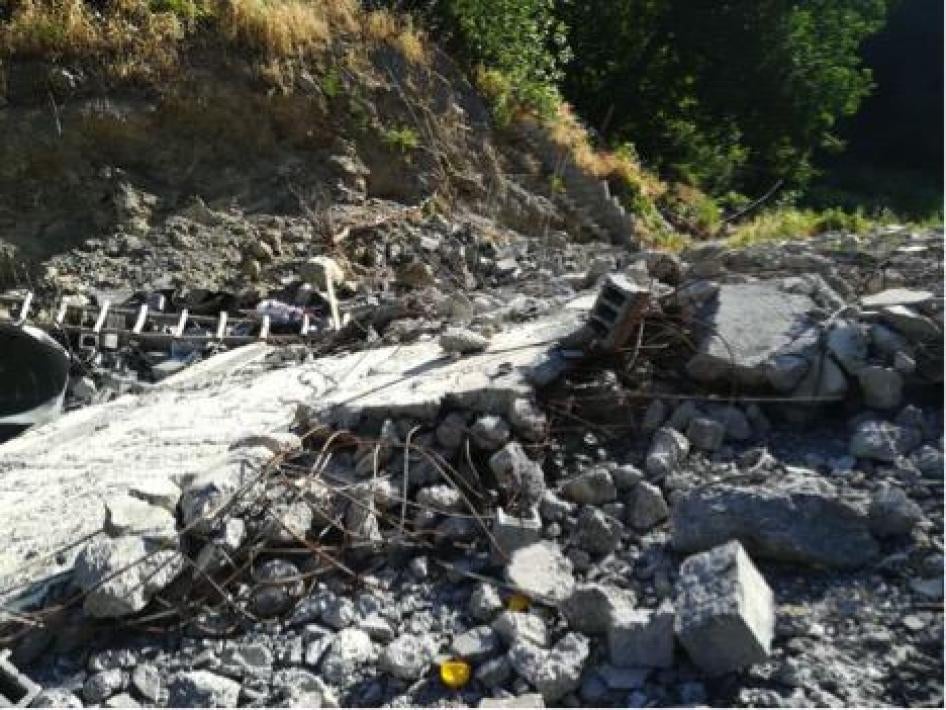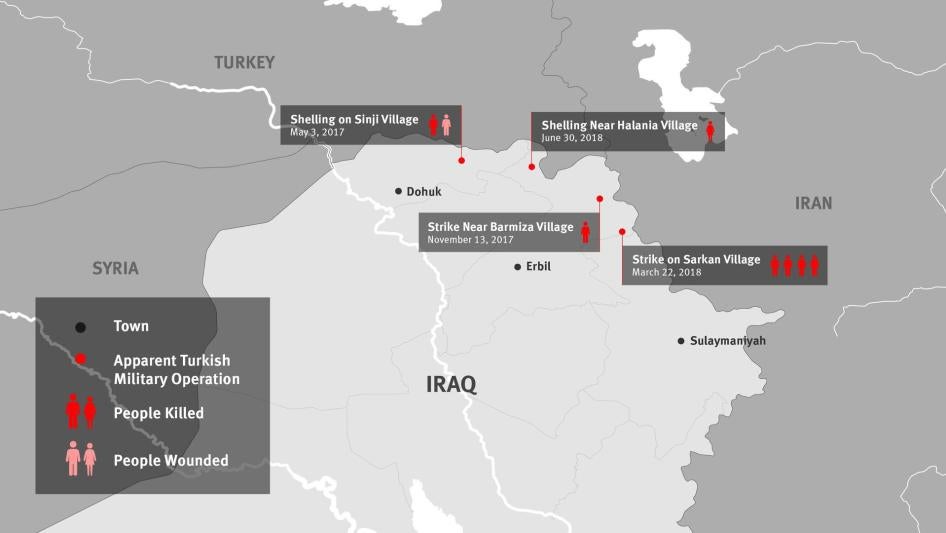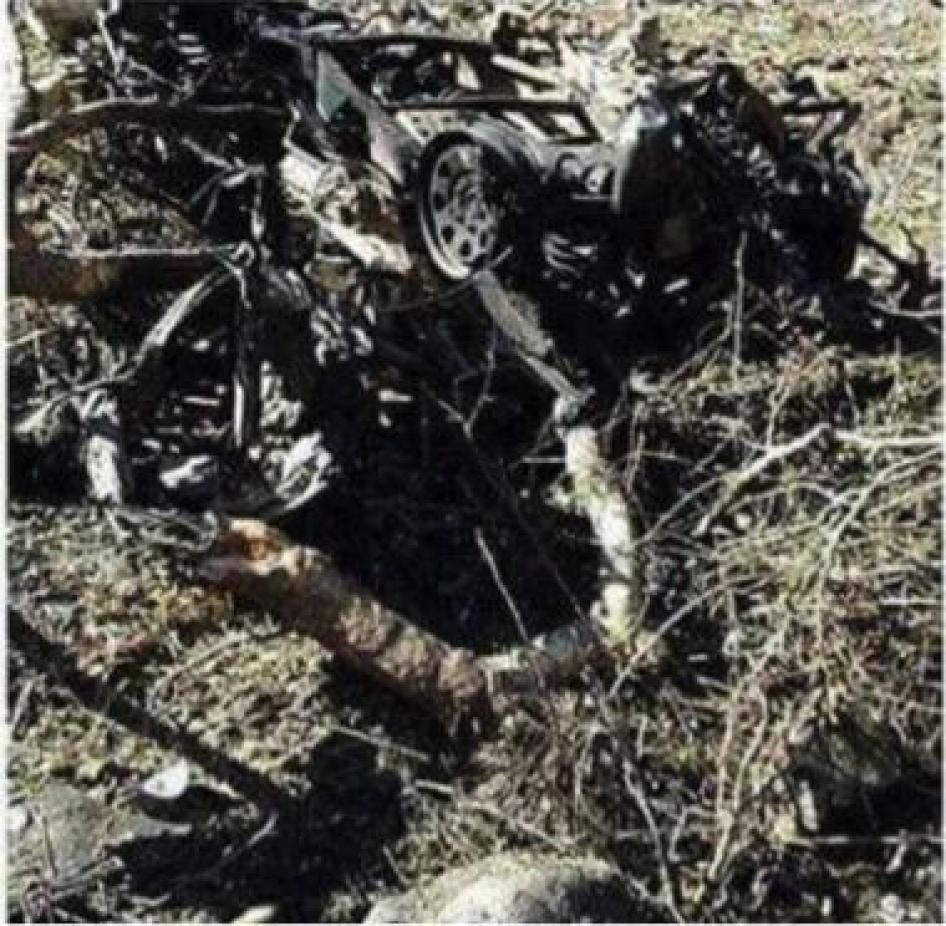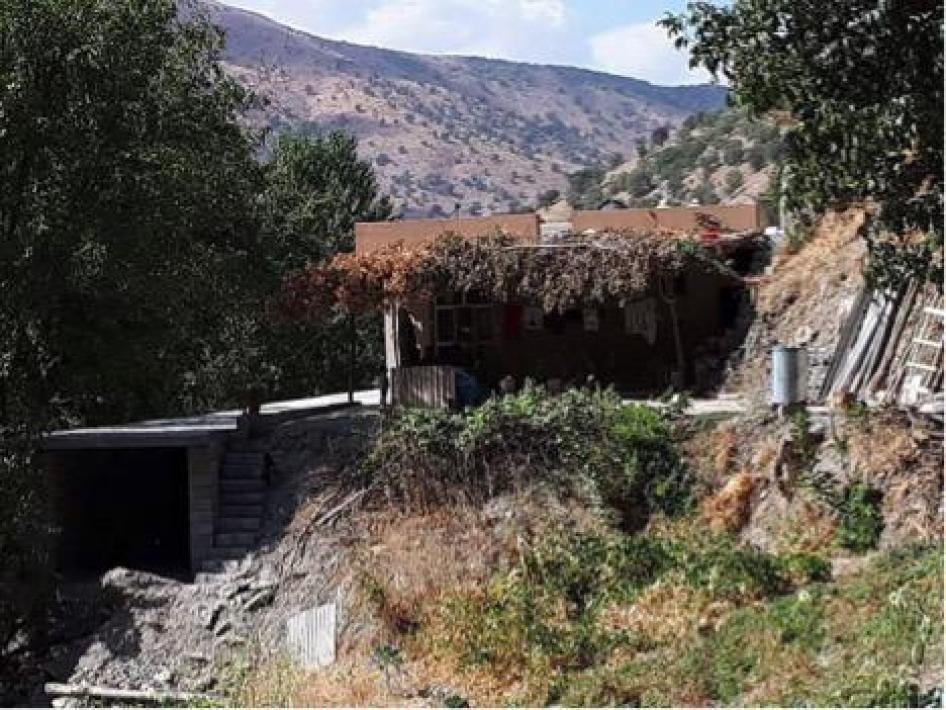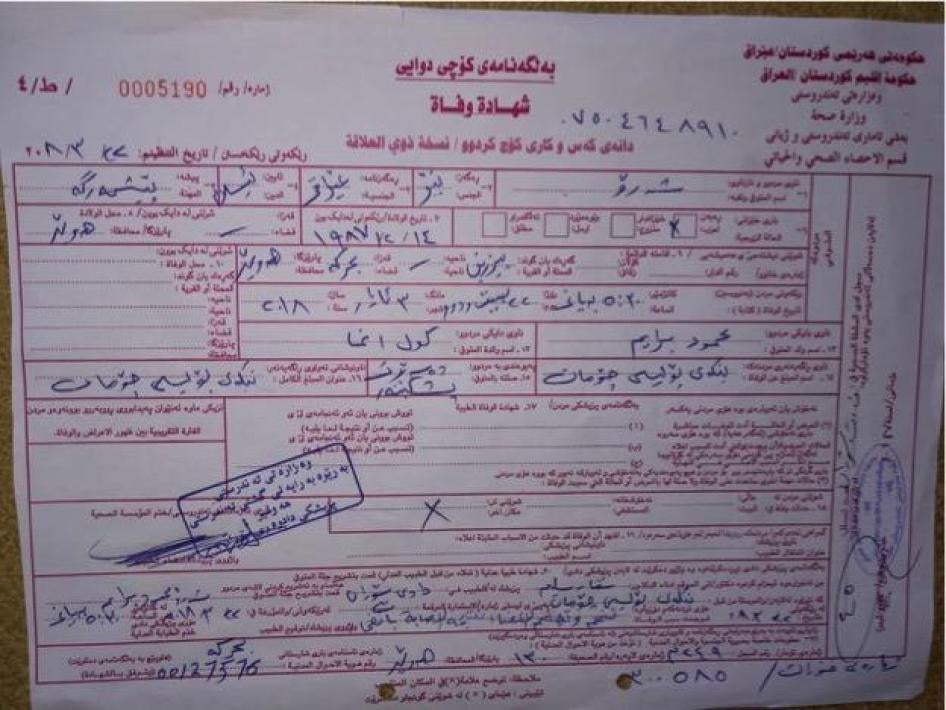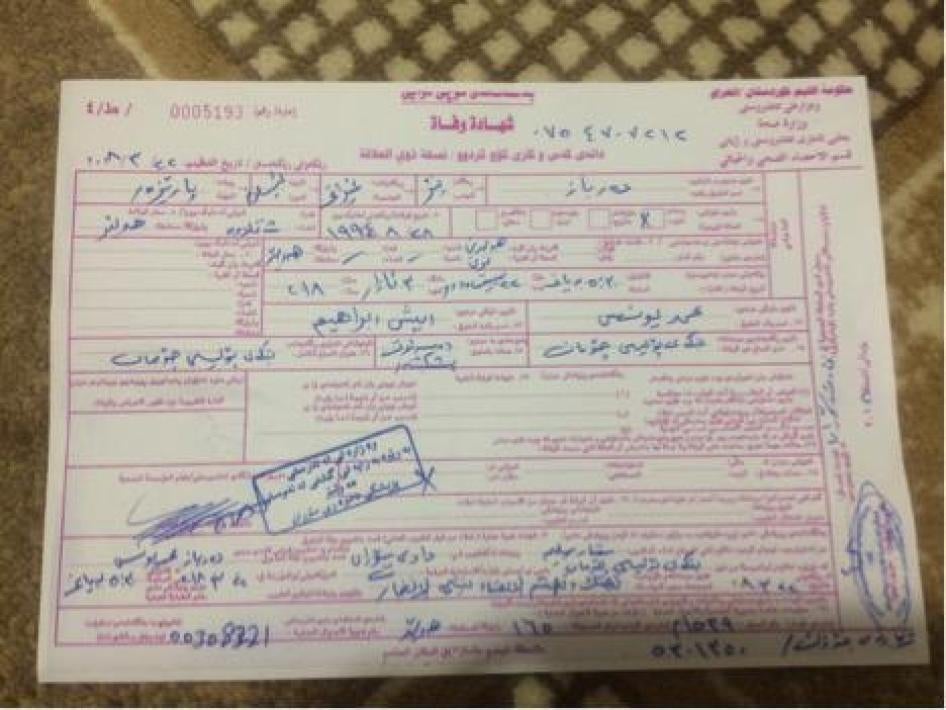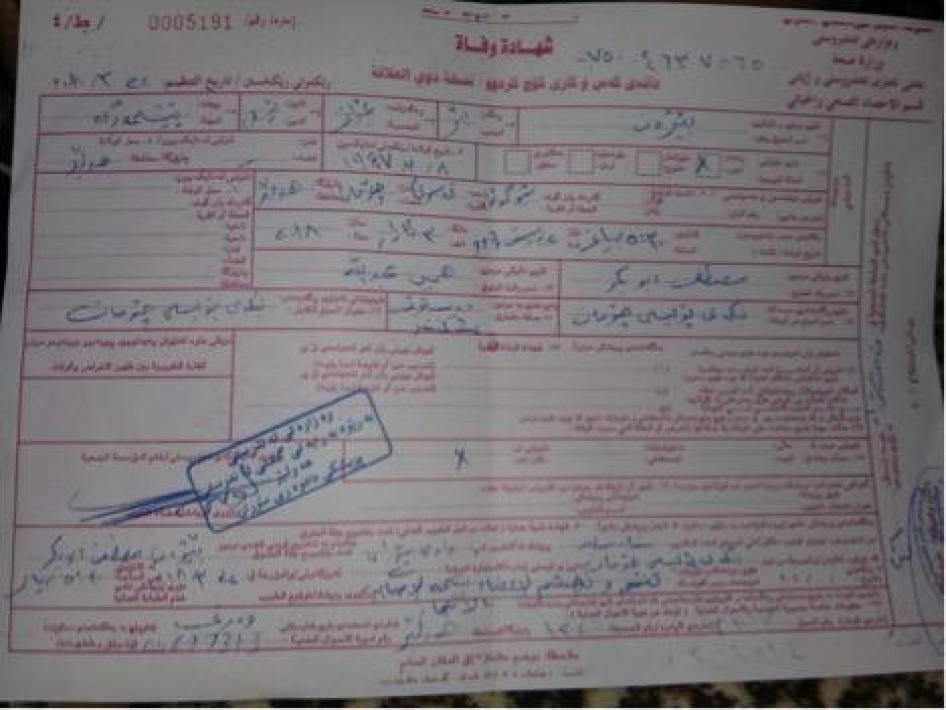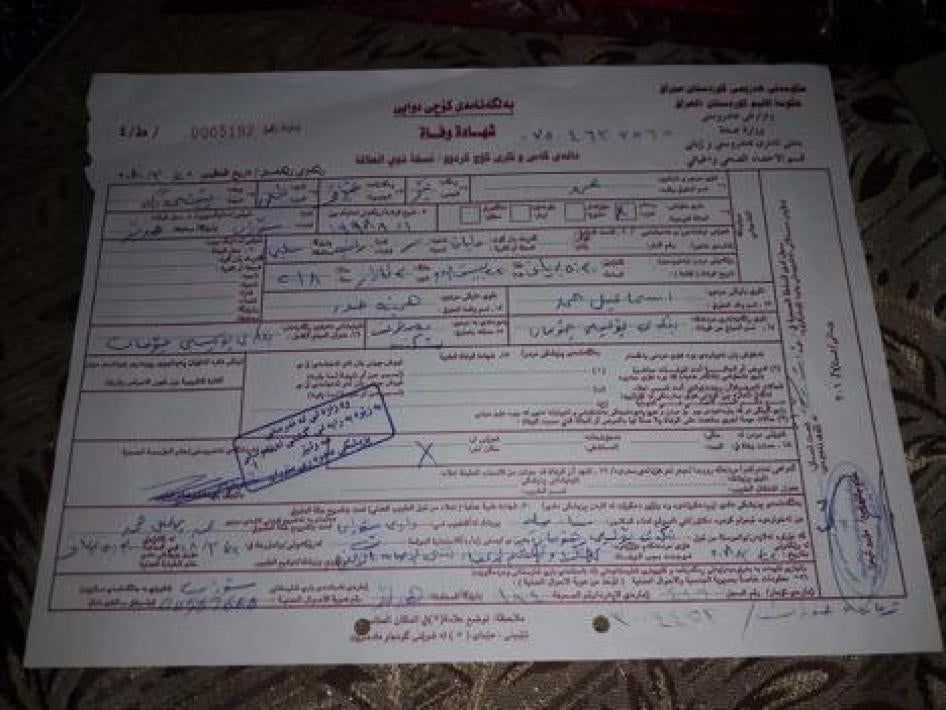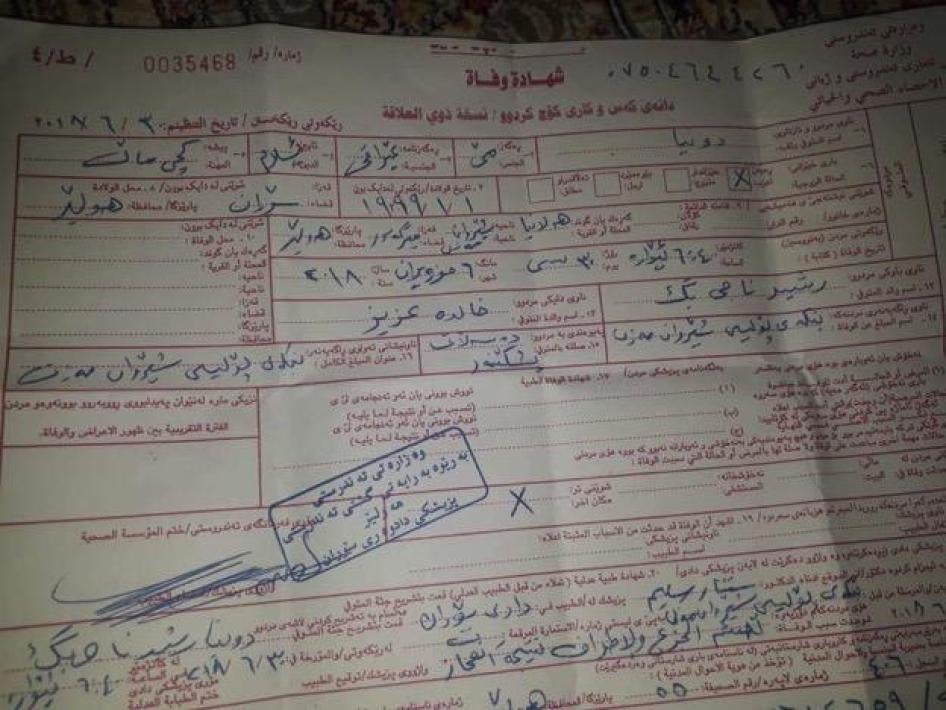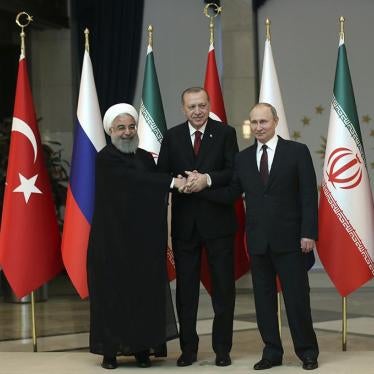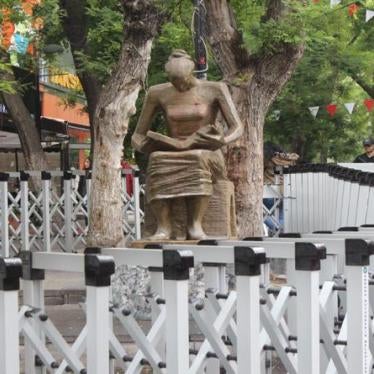(Erbil) – Four apparent Turkish military operations against the armed Kurdistan Workers’ Party (PKK) in northern Iraq dating back over a year should be investigated for possible violations of the laws of war, Human Rights Watch said today. The attacks killed at least seven non-combatants and wounded another, witnesses and relatives said.
Speaking to Human Rights Watch by phone, witnesses and relatives said that what appeared to be Turkish air and ground attacks during four operations between May 2017 and June 2018 killed at least six men and one woman and injured another man. They said there were no apparent military objectives near the strikes. Human Rights Watch was unable to visit the sites but obtained photographs and death certificates to corroborate the allegations.
“As Turkey steps up operations in Iraq, it should be taking all feasible precautions to avoid harming civilians there,” said Lama Fakih, deputy Middle East director at Human Rights Watch. “Turkey should investigate possible unlawful strikes that killed civilians, punish those responsible for wrongdoing, and compensate victims’ families.”
The PKK, an outlawed armed group active in Turkey, has long maintained a presence in northern Iraq near the Turkish, Iranian, and Syrian borders. Turkish forces have conducted operations against the PKK in Iraq for over a decade. Since March, Turkish forces appear to have extended their presence into northern Iraq by at least 15 kilometers, establishing multiple outposts, including in rural areas of Dohuk and Erbil governorates under the control of the Kurdistan Regional Government (KRG).
Residents say the Turkish Armed Forces have declared the areas surrounding their outposts out of bounds for civilians. However, local people depend on these sparsely populated agricultural areas.
On May 3, 2017, apparent Turkish forces started shelling farmland six kilometers south of the Turkish border as six farmers were working their land, without any apparent warning, said one farmer present at the time. He told Human Rights Watch that the second projectile killed his uncle and wounded his cousin, both civilians. He said that as far as he knew PKK fighters were about 30 kilometers away at the time, but he did not hear any fire coming from the direction where he believed the PKK to be based.
On November 13, outside a village in the Sidekan area, an apparent Turkish airstrike hit a car, killing the one man inside it, his wife said. She said she had heard planes overhead all day, and that there had been daily strikes in the area for months. She said there was an unnamed PKK base two kilometers away, but her husband was not driving nearby.
On March 22, 2018, an apparent Turkish nighttime airstrike killed four men, all cousins visiting their family home in a village in the Choman area. They allegedly had no PKK links, according to neighbors, and three were members of the regional government’s Peshmerga forces, which are not engaged in an armed conflict with Turkey. Their neighbor and relative said that the nearest PKK presence was in the mountains about five kilometers away and that this was the first airstrike on the village.
Apparent Turkish shelling at around 4 p.m. on June 30, hit and killed a 19-year-old civilian about seven kilometers from the border. Her father said she was with her family and a large group of villagers harvesting nuts and wild herbs. He said there was a Turkish base about three kilometers away, and no PKK presence nearby as far as he knew.
Media coverage as well as witnesses who said they saw aircraft and the direction that shelling came from suggested the Turkish Armed Forces were the source of all four attacks. The witnesses said that they had not received any warning from Iraq, the KRG, or Turkey about staying away from ongoing military operations. All four families who lost relatives said that no officials had contacted them to investigate the attacks or provide any reparations, and that they did not know how to request an investigation or compensation.
The reported killing of at least seven non-combatants in strikes where there may have been no legitimate military target nearby raises concerns that the strikes were unlawful under international law, Human Rights Watch said, and they should be investigated.
Turkish strikes would need to target only legitimate military objectives to be lawful. Turkey would also have to issue an effective warning, take feasible precautions to protect civilians, and ensure that attacks did not disproportionately harm civilians and civilian objects.
Turkish military operations in Iraq have killed civilians in the past, including a 2015 attack in the Qandil Mountains. Media coverage of Turkish military operations suggested 15 additional attacks between October 2015 and August 2018 that caused civilian casualties. Baghdad authorities have denied granting permission for the Turkish operations in northern Iraq but it is unclear what measures the Iraqi government or the KRG have taken to investigate the attacks. On September 16, Iraqi Prime Minister Haider al-Abadi announced that federal border guards would be positioned on the border with Turkey to document airspace violations and “prevent breaches.”
Related Content
Human Rights Watch wrote to the Turkish, Iraqi, and KRG authorities asking about the measures taken to minimize and investigate civilian casualties, and to enable victims and their families to seek reparations. In a response on September 16, Dr. Dindar Zebari, the KRG coordinator for international advocacy, stated that the regional government does not coordinate with the Turkish Armed Forces about upcoming military operations in northern Iraq. He said the KRG “encouraged a peaceful settlement of conflict between both sides” and has regularly condemned attacks that have harmed civilians. The KRG Ministry of Peshmerga consistently reports on the consequences of the attacks to the Iraqi federal government and has called on the federal government to push for an end to the attacks, he said.
He shared with Human Rights Watch 32 incident reports by the Ministry of Peshmerga on Iranian and Turkish military operations against the PKK and other Kurdish armed groups in northern Iraq between December 2016 and July 2018. He included a summary of the villages that have been affected and evacuated because of attacks, and said that in the Sidekan area alone, over 50 civilians had been killed.
Human Rights Watch has received no response from the Iraqi or Turkish authorities.
Turkey and the KRG should conduct impartial, thorough, and transparent investigations to establish whether the strikes were unlawful. Turkish authorities should compensate victims of any unlawful strikes and take all feasible measures to minimize civilian casualties. Iraq and the KRG should also press for Turkish investigations and compensation in the case of unlawful attacks.
“While the obligation to investigate and compensate lies with Turkey, Baghdad and Erbil should take all possible steps to protect Iraqi civilians from unlawful military operations,” Fakih said.
May 3, 2017 Shelling on Sinji Village
Ismael Subhi, 20, the nephew of Sidqy Islam Hafzullah, 40, a shopkeeper, said that he, his uncle, and six other relatives were the only family still living in their village of Sinji in Amadiya district. Most residents had abandoned the area in around 2000, after Turkish attacks began targeting the area because of an alleged PKK presence.
Subhi said that by May 2017, there was a Turkish army presence about 500 meters from their home. He said he saw Turkish forces start shelling their farmland as they were working the land at around 10 a.m. on May 3 without any warning or apparent reason, he said, adding that as far as he knew PKK fighters were about 30 kilometers away. Subhi did not hear any fire coming from that direction. He saw an initial projectile land about 300 meters away, he said, and then a second much closer, that killed Hafzullah and wounded his cousin Bewar Naif Sadiq, 32, with metal fragments to his head, left arm, and chest. None of the other family members were hurt, he said.
Subhi said the shelling continued and they had to leave Hafzullah’s body for three days before PKK fighters from a neighboring area helped them to retrieve it. Friends from a neighboring village took Sadiq to a hospital.
On May 4, Turkish media reported that in an aerial campaign in northern Iraq, “four gun posts and two caves and shelters belonging to the terrorists were destroyed.” There was no media coverage of any Turkish shelling in the area at that time.
November 13, 2017 Strike Near Barmiza Village
The wife of Amda’ad Othman Darwish Hassan, 24, said she and her husband, a trader between Iraq and Turkey, lived in Barmiza, a village 50 kilometers northeast of Erbil. She said that at about 4:50 p.m. on November 13, she called Hassan to ask when he would be coming home so she could prepare food for him. He said he was only two kilometers from home. She said,
Two minutes after I got off the phone, I heard a loud explosion and ran outside. I saw black smoke in the distance and instinctively knew my husband had been hit. I called his father to tell him what had happened, but he didn’t believe me and said he would drive toward the smoke to check.
She said Hassan’s father and other villagers got to the site where they found a large crater in the road and Hassan’s car upside down. Her father-in-law told her Hassan’s body was found two meters from the car. She shared two photos taken by a villager that show a large crater and a destroyed car upside down.
Hassan’s wife, who did not want to be named, said that all day she had heard planes overhead, and that there had been daily strikes in the area for months, and more limited strikes in the area for many years. She said a PKK base two kilometers from the village might have been the target. Residents had not been traveling outside of their homes much because of the strikes, she said, but her husband needed to trade to support the family. She said that as far as she knew, neither the Iraqi government, KRG, nor Turkish authorities had issued any warnings to residents about ongoing strikes.
Hassan’s wife said the Turkish military have a base about five kilometers from the village but she did not know its name. Local media coverage of the strike reported that in addition to killing Hassan, Turkish airstrikes at the same time in the same area hit another car killing some PKK fighters.
March 22, 2018 Strike on Sarkan Village
Rasul Aga Ali, 49, a farmer from Sarkan village, in Qasre sub-district of Choman, told Human Rights Watch that his home is 200 meters from the abandoned family home of his neighbor, Sharo Mahmoud Braym, 31, a sergeant major in the Peshmerga. Ali said that on March 21, he saw Braym and his cousins go home and have a picnic in the garden, and then spend the night.
At around 1 a.m. on March 22, Ali was awakened by the sound of airplanes overhead and heard a loud explosion. He got up and ran outside with his son, he said, and they saw Braym’s single-story house destroyed, but no other damage in the area. They searched through the rubble and recovered four adult male bodies charred beyond recognition, he said. Ali and his son transported the bodies to the nearest hospital, in Qasre, nine kilometers away. Ali showed Human Rights Watch photos of the bodies.
Another cousin of Braym, a 30-year-old assistant professor at a local university who asked not to be named, said that Braym, and his cousins Bezhan Mustafa Abubakir, 21, Muhammad Ismail Hamad, 20 – both peshmerga – and Darbaz Muhammad Younis, 24, a lawyer, had gone to the village on March 21. The cousin said doctors called him six hours after the men had been taken to Qasre Hospital and told him they had all died. Braym’s cousin showed Human Rights Watch the death certificates, which state that the men were killed in the early hours of March 22 in an explosion. The certificates included the men’s names, ages, and professions. Local media reported on the airstrike.
Ali and Braym’s cousin said that the PKK are present in the mountains around five kilometers from their village and that some PKK fighters visit neighboring villages but not Sarkan, as far as they knew. They said none of men killed had any links to the PKK. This was the first time the village was targeted in an airstrike, they said, adding that airstrikes then continued in the surrounding area almost on a weekly basis.
The office of the Chief of Staff of the Turkish Armed Forces stated on Twitter on March 27 that, “On 22 March 2018, due to the air campaign against the members of the separatist terrorist organization who were found ready to attack our troops in the northern part of Iraq Kandil district, 41 terrorists have been rendered ineffective.” The operations were covered in more detail by local Turkish media outlets. None of the Turkish coverage reported the deaths of any civilians, and the the chief of the ceneral staff of the Turkish Armed Forces of the period. Hulusi Akar, spoke to soldiers involved in the operations, who said that no harm had come to civilians.
The Iraqi foreign ministry condemned the military operations following the attack.
June 30, 2018 Shelling Near Halania Village
The father of Dunya Rashid Najibeg, 19, said that on June 30 at 4 p.m., he and his daughter drove with relatives to an area outside the village of Halania, seven kilometers from the Turkish border, to pick some nuts and wild herbs. The area had come under Turkish shelling two days earlier, according to the Christian Peacemaker Teams, a nongovernmental group with a presence in the area. The father, who asked not to be identified, said he and his family visit the area regularly, and that on June 30 there were over 30 villagers, including children, picking nuts and herbs there.He was standing about 300 meters away from Dunya, he said, when one projectile landed nearby and then a second hit her. Metal fragments entered his daughter’s body, killing her immediately, he said. He drove her body to Halania and from there an ambulance took them to Ashti hospital in Mergasor, Soran. He showed Human Rights Watch her death certificate, which gives an explosion as the cause of death.
Her father said there was a Turkish base about three kilometers from the strike site and no PKK presence in the area as far as he knew. He did not hear any other fire before the shelling. An international aid organization posted photos of what it said was a projectile found at the site of the attack.
The Turkish Armed Forces’ Twitter account mentioned aerial operations in northern Iraq and areas of Turkey on June 30 and July 1 where, “eight terrorists were rendered ineffective.” It is unclear whether this refers to the shelling outside Halania.
